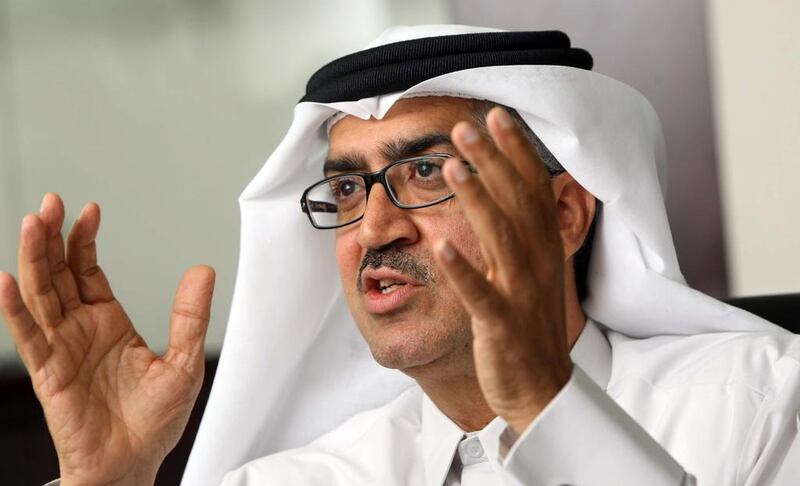DUBAI // Solar power plants with a combined capacity of 100 megawatts are being planned for the Northern Emirates in a Dh500 million project that aims to cut the cost of energy production and lower carbon emissions.
Mohammed Saleh, director general of the Federal Electricity and Water Authority (Fewa), told the state news agency Wam that the plants will be built in partnership with the private sector. Work on the first plant will start this year.
A plant with a capacity of 100 MW can produce enough power to meet the needs of 20,000 homes. In terms of carbon emissions savings, this equals about 175,000 tonnes of carbon dioxide per year – the equivalent of removing 15,000 cars from the roads.
Fewa’s decision follows the Vision 2021 strategy which has set a clean energy target. By 2021, 24 per cent of the country’s power should come from renewable sources or nuclear energy, according to the strategy.
In 2013, only 0.02 per cent of energy in the country came from such sources.
Further details of the Northern Emirates project are yet to emerge, but the announcement was welcomed by solar industry observers.
Claudio Palmieri, technical director of the Clean Energy Business Council and chief executive of CLS Energy Consultants, said: “The decision is a clear indication that the UAE Government is serious about achieving its renewable energy targets and dedicated to protecting the environment.”
Sami Khoreibi, chief executive and founding partner of solar power installer Enviromena Power Systems, said it remained to be seen how the plans would be implemented, but he welcomed the move.
“My guess is, it would be that a lot of the solar capacity will be displacing diesel and oil generation capacity,” Mr Khoreibi said.
He explained that should this be the case, some solar technologies were “definitely at grid parity” with conventional resources. Mr Khoreibi expected the technology involved to be solar photovoltaic (PV) panels that capture the sun’s light and transform it into electricity.
The technology, he said, “is no longer just a green option” but an economically sound one, too.
“It would definitely make sense for it to be solar PV technology,” he said. “PV is producing at substantially lower costs than other sources.”
The announcement comes months after Dubai Electricity and Water Authority decided to double the size of a solar PV plant for the emirate after achieving record low prices in a tender process involving major global and regional players.
That 200MW plant, expected to go online in April 2017, will be the biggest such facility in the Middle East and North Africa.
It will be built and operated by Acwa Power, a Saudi Arabian company that will finance and construct the plant, receiving a fixed tariff for the electricity produced over a period of 25 years. The company will be paid 5.84 US cents per kilowatt hour.
The project, said Mr Khoreibi, is “proof that solar can be installed in the UAE at rates more competitive than other energy sources”.
vtodorova@thenational.ae





